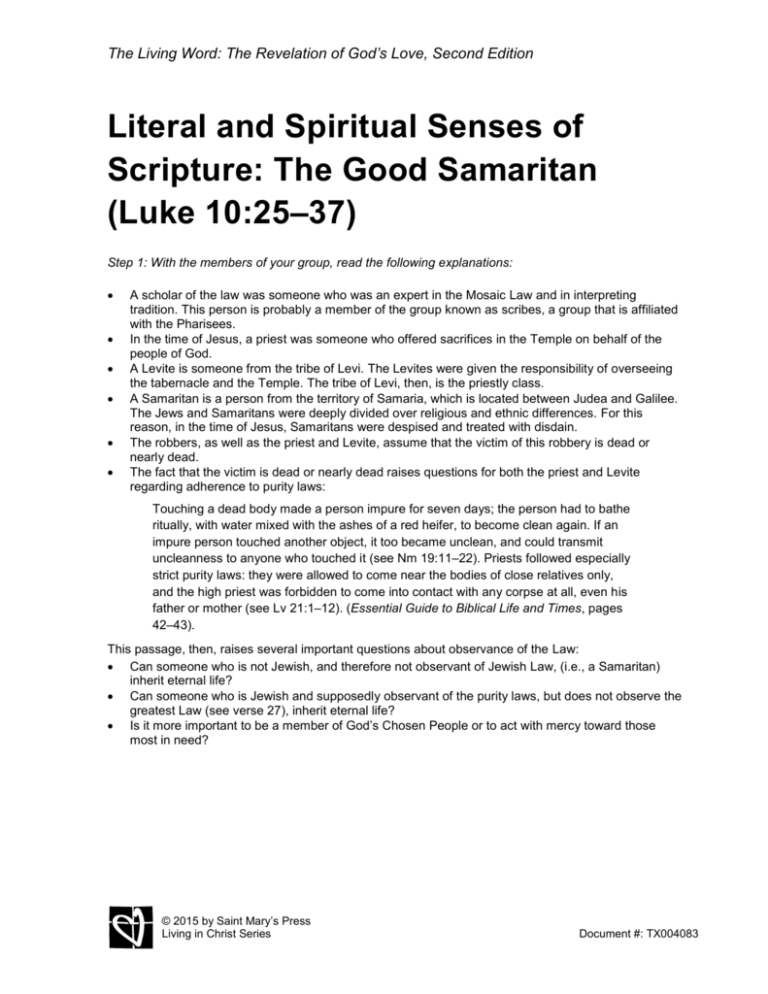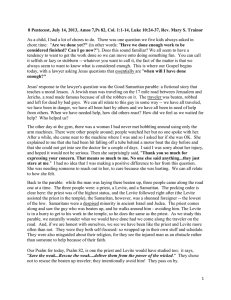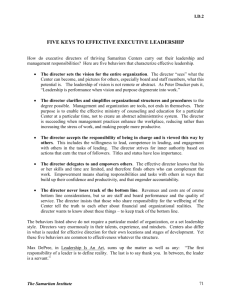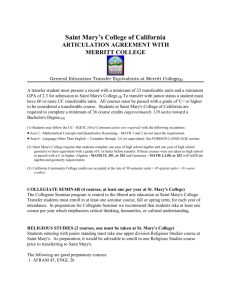
The Living Word: The Revelation of God’s Love, Second Edition
Literal and Spiritual Senses of
Scripture: The Good Samaritan
(Luke 10:25–37)
Step 1: With the members of your group, read the following explanations:
A scholar of the law was someone who was an expert in the Mosaic Law and in interpreting
tradition. This person is probably a member of the group known as scribes, a group that is affiliated
with the Pharisees.
In the time of Jesus, a priest was someone who offered sacrifices in the Temple on behalf of the
people of God.
A Levite is someone from the tribe of Levi. The Levites were given the responsibility of overseeing
the tabernacle and the Temple. The tribe of Levi, then, is the priestly class.
A Samaritan is a person from the territory of Samaria, which is located between Judea and Galilee.
The Jews and Samaritans were deeply divided over religious and ethnic differences. For this
reason, in the time of Jesus, Samaritans were despised and treated with disdain.
The robbers, as well as the priest and Levite, assume that the victim of this robbery is dead or
nearly dead.
The fact that the victim is dead or nearly dead raises questions for both the priest and Levite
regarding adherence to purity laws:
Touching a dead body made a person impure for seven days; the person had to bathe
ritually, with water mixed with the ashes of a red heifer, to become clean again. If an
impure person touched another object, it too became unclean, and could transmit
uncleanness to anyone who touched it (see Nm 19:11–22). Priests followed especially
strict purity laws: they were allowed to come near the bodies of close relatives only,
and the high priest was forbidden to come into contact with any corpse at all, even his
father or mother (see Lv 21:1–12). (Essential Guide to Biblical Life and Times, pages
42–43).
This passage, then, raises several important questions about observance of the Law:
Can someone who is not Jewish, and therefore not observant of Jewish Law, (i.e., a Samaritan)
inherit eternal life?
Can someone who is Jewish and supposedly observant of the purity laws, but does not observe the
greatest Law (see verse 27), inherit eternal life?
Is it more important to be a member of God’s Chosen People or to act with mercy toward those
most in need?
© 2015 by Saint Mary’s Press
Living in Christ Series
Document #: TX004083
Literal and Spiritual Senses of Scripture: The Good Samaritan (Luke 10:25–37)
Step 2: Read aloud with your group Luke 10:25–37.
Step 3: Discuss the following questions with your group. Each group member should take notes on the
other group members' responses.
How does this information change your understanding of the story?
In what way does this information expand, amplify, or deepen your understanding of the text?
Why is it important to have this kind of information about a Scriptural text before or as we read it?
What impact can this have on our understanding of Scripture?
(The excerpt on this handout is from Essential Guide to Biblical Life and Times, by Martin C. Albl [Winona, MN: Saint Mary’s
Press, 2009], pages 42–43. Copyright © 2009 by Saint Mary’s Press. All rights reserved.)
© 2015 by Saint Mary’s Press
Living in Christ Series
Handout Page | 2
Document #: TX004083












